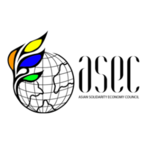What Is SSE
The term “Social Solidarity Economy” or SSE started to be used in the late 90s, where an assembly took place in Lima, Peru on July 4th, 1997 and the participants from more than 30 countries agreed that there needed to be a strong integration between the more traditional social economy structures (collective enterprises – a sector of the solidarity economy) and the more holistic and alternative approaches of solidarity economy practices and communities. Given SSE’s respect for the diversity of local experience, history, culture, and political/economic realities, there are differences in its definition.
There is nevertheless a common, general vision with shared values and principles that is found worldwide. In recent years, a global SSE movement is emerging – a rapidly growing transformative, citizen-led alternative to market-driven capitalism, aimed at systemic change to build an economy and society that serves people and planet.
SSE is grounded in locally rooted initiatives that are increasingly globally networked, with a broad political (but not ideological) framework based on solidarity, equity, human and Earth rights, self-determination, mutuality, and cooperation.
SSE proposes to confront the development of a capitalist, neoliberal economy that is far removed from the reality of people’s diversity and resource limitations, focused on extractivism, the unlimited growth of consumption and production, and disregarding the social and environmental effects that this entails. Its sole objective is profit and profit maximisation, increasing the already existing unsustainable precariousness, poverty and inequality.
SSE proposes a system that is not only economic, but also socio-political and cultural, basing life-sustaining processes at the centre of socio-economic activity, placing people, communities and the environment above capital and its accumulation, and rejecting relations of inequality and exclusion based on gender, sexual orientation and identity, age or origin through values related, among others, to cooperation, reciprocity, self-management and solidarity. SSE includes a wide range of practices that span economic, social, environmental, political, communitarian or holistic dimensions.
The SSE encompasses enterprises, organizations and other entities that are engaged in economic, social, and environmental activities to serve the collective and/or general interest, which are based on the principles of voluntary cooperation and mutual aid, democratic and/or participatory governance, autonomy and independence, and the primacy of people and social purpose over capital in the distribution and use of surpluses and/or profits as well as assets.
(International Labour Conference – 110th Session, ILO, 2022)
